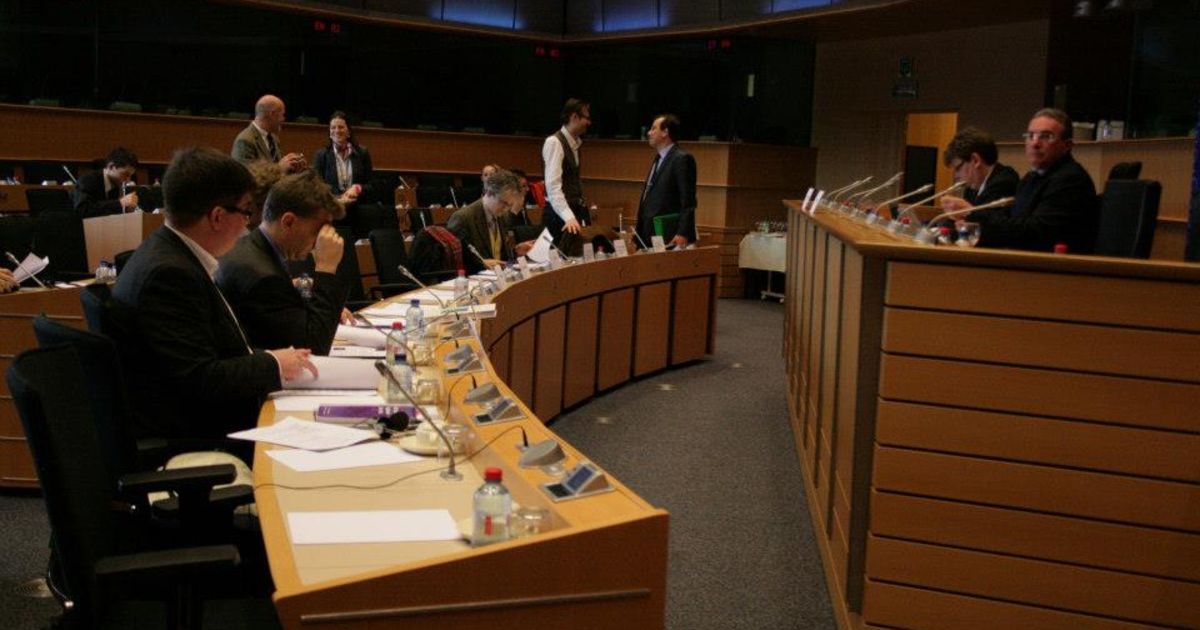
Expert meeting in Brussels
29.01.2013Minority rights and European law experts say the assessment of the founding partners on the minority European Citizens' Initiative is correct and the idea of presenting a Minority SafePack for safeguarding the European national minorities to the European Commission is well founded. The exchange of view took place on Tuesday, the 22 January, in Brussels, at the European Parliament in a closed doors meeting and was organized by the Federal Union of the European Nationalities (FUEN).
Jan Diedrichsen, FUEN director and moderator of the meeting, stressed the importance of the European Parliament's support for minority rights. He also praised the presence and contribution of the MEPs from the RMDSZ, SVP and the co-chair of the EP Intergroup for Minorities. He welcomed professor Frank Hoffmeister, lawyer and deputy head of Cabinet for Commissioner Karel de Gucht, Gabriel von Toggenburg, programme manager at the Fundamental Rights Agency, Günther Rautz, coordinator at the EURAC Minority Research Institute from South Tyrol and Dimitry Kochenov, professor at the University of Groningen.
The event was hosted by MEP Iuliu Winkler, representing the Hungarians in Romania. He informed the participants about the cooperation agreement signed last week in Bozen, South Tyrol by the RMDSZ, the South Tyrolean People's Party (SVP) and the FUEN. This political decision reflects the joint commitment of the founding partners to the project.
In his opening remarks MEP Winkler stated that European minority solidarity is needed for the Minority SafePack. Each community has to find in this package measures of added value in his particular situation, from the communities which enjoy autonomy status, to the smallest linguistic groups. "Some form of autonomy, including territorial autonomy and selfdetermination is the aspiration of every minority community. We have to translate our aim into EU bureaucratic language and realise it within the EU" - stressed MEP Winkler. In his opinion the minority ECI is a long-term project, which will determine the fight for minority rights in the EU for the next decade. "I am optimistic, since we have to observe the probable transformation of the EU itself, I am confident that national minorities rights will succeed to get more attention"- said MEP Winkler.
According to the experts, the Minority SafePack and the initiative itself must based on the EU treaties and its language must be adapted accordingly. They analyzed from this point of view, the areas in which the initiative invites the European Commission to take action. The policy areas identified by the Minority SafePack will be related to national identity, language and the preservation of culture, fundamental rights, non-discrimination, cultural and linguistic rights, education, citizenship, and audio-visual media. Regional and cohesion policy is another important area, together with the creation or expansion of various forms of autonomy. During the debates other specific measures were identified such as programs for supporting linguistic diversity in Europe and political representation of the minority communities.
SAJTÓKÖZLEMÉNYEK
- New secretariat in the Polish parliament supports national and ethnic minorities
- FUEN calls for the inclusion of the Ladin language at the 2026 Winter Olympic Games
- FUEN Urges UN Special Rapporteur to Advocate for a Coherent EU Minority Protection Framework
- FUEN wishes you a peaceful Christmas season, restful days and a bright, hopeful start to the new year!
- FUEN calls on the EU to act over systematic ethnic-based land confiscations in Slovakia
- Women of Minorities conference in Budapest calls for structural change to ensure equal political participation of minority women
- FUEN President Olivia Schubert at UN Forum on Minority Issues in Geneva
- "Laboratory of Peace": 28th Seminar of Slavic Minorities held in European Capital of Culture Gorica/Gorizia
- Equality in Political Participation and Representation: Third “Women of Minorities” Conference to Be Held in Budapest
- FUEN Working Group on Education discusses challenges and future of minority schooling in Europe














